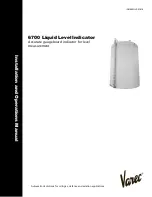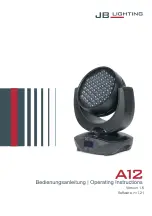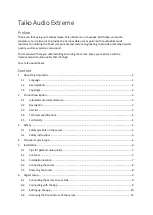
SAFETY
PRECAUTIONS
This inversion table was designed and built for optimum safety. However, certain precautions apply
whenever you operate the exercise equipment. Be sure to read the entire manual before assembling and
operating this equipment. Also, please note the following safety instructions:
1. Consult your physician or other health care professionals before using the inversion table.
2. Always wear proper exercise apparel when using the equipment.
3. If any time you feel faint, light-headed or dizziness while operating the equipment, stop exercise
immediately. You should also stop exercising if you are experiencing pain or pressure.
4. Keep children and pets away from the equipment while in use.
5. Only one person should use the equipment at a time.
6. Make sure your equipment is correctly assembled before you use it. Be sure all screws, nuts, and bolts
are tightened prior to use.
7. Do not operate this or any exercise equipment if it is damaged.
8. Watch your body: come up slowly, dizziness after a session means you came up too fast. Wait a while
after eating before using the inversion table. If you get nauseous, come up as soon as you feel queasy.
9. Always use this equipment on a clear and level surface. Do not use outdoors or near water.
10. Keep hands and feet away from any moving parts. Do not insert any object into any openings.
11. Keep loose clothes, jewelry away from moving parts.
12.
WARNING: ALWAYS HOLD ON TO THE SAFETY HANDLES AND GO BACK SLOWLY WHEN
INVERTING. FAILURE TO COMPLY COULD RESULT IN SERIOUS BODILY INJURY.
WARNING: Before using this equipment you should consult with your personal
physician to see if inversion equipment is appropriate for you. Do not use this
equipment without your physician's approval. Do not use this equipment if you have
any of the following conditions or ailments:
Extreme obesity
Glaucoma, retinal detachment or conjunctivitis
Pregnancy
Spinal injury, Cerebral Sclerosis, or acutely swollen joints
Middle ear infection
High blood pressure, Hypertension, Recent stroke or Transient ischemic attack
Heart or circulatory disorders for which you are being treated
Hiatus hernia or Ventral hernia
Bone weaknesses including Osteoporosis, Unhealed fractures,
Modularly pins, or Surgically
implanted orthopedic supports.
Use of anti-coagulants including Aspirin in high doses.
2
Summary of Contents for 75163
Page 4: ...SAFETY PRECAUTIONS 3 ...
Page 5: ...OVERVIEW DRAWING 4 ...




































